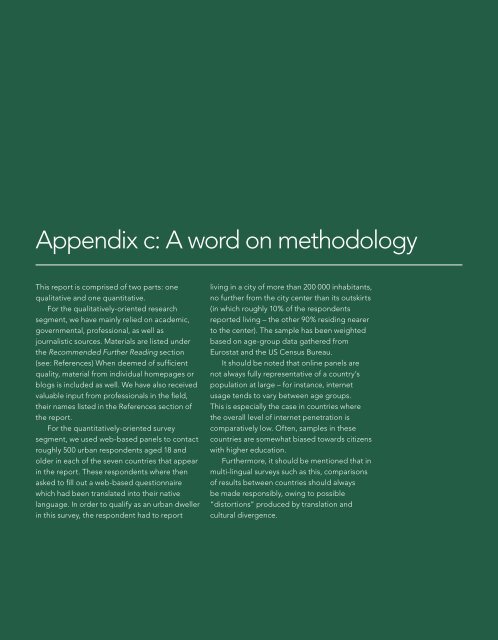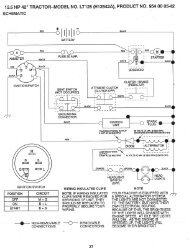GLOBAL GARDEN REPORT 2012 - Husqvarna Group
GLOBAL GARDEN REPORT 2012 - Husqvarna Group
GLOBAL GARDEN REPORT 2012 - Husqvarna Group
Create successful ePaper yourself
Turn your PDF publications into a flip-book with our unique Google optimized e-Paper software.
Appendix c: A word on methodology<br />
This report is comprised of two parts: one<br />
qualitative and one quantitative.<br />
For the qualitatively-oriented research<br />
segment, we have mainly relied on academic,<br />
governmental, professional, as well as<br />
journalistic sources. Materials are listed under<br />
the Recommended Further Reading section<br />
(see: References) When deemed of sufficient<br />
quality, material from individual homepages or<br />
blogs is included as well. We have also received<br />
valuable input from professionals in the field,<br />
their names listed in the References section of<br />
the report.<br />
For the quantitatively-oriented survey<br />
segment, we used web-based panels to contact<br />
roughly 500 urban respondents aged 18 and<br />
older in each of the seven countries that appear<br />
in the report. These respondents where then<br />
asked to fill out a web-based questionnaire<br />
which had been translated into their native<br />
language. In order to qualify as an urban dweller<br />
in this survey, the respondent had to report<br />
56 <strong>GLOBAL</strong> <strong>GARDEN</strong> <strong>REPORT</strong> <strong>2012</strong><br />
living in a city of more than 200 000 inhabitants,<br />
no further from the city center than its outskirts<br />
(in which roughly 10% of the respondents<br />
reported living – the other 90% residing nearer<br />
to the center). The sample has been weighted<br />
based on age-group data gathered from<br />
Eurostat and the US Census Bureau.<br />
It should be noted that online panels are<br />
not always fully representative of a country’s<br />
population at large – for instance, internet<br />
usage tends to vary between age groups.<br />
This is especially the case in countries where<br />
the overall level of internet penetration is<br />
comparatively low. Often, samples in these<br />
countries are somewhat biased towards citizens<br />
with higher education.<br />
Furthermore, it should be mentioned that in<br />
multi-lingual surveys such as this, comparisons<br />
of results between countries should always<br />
be made responsibly, owing to possible<br />
“distortions” produced by translation and<br />
cultural divergence.

















